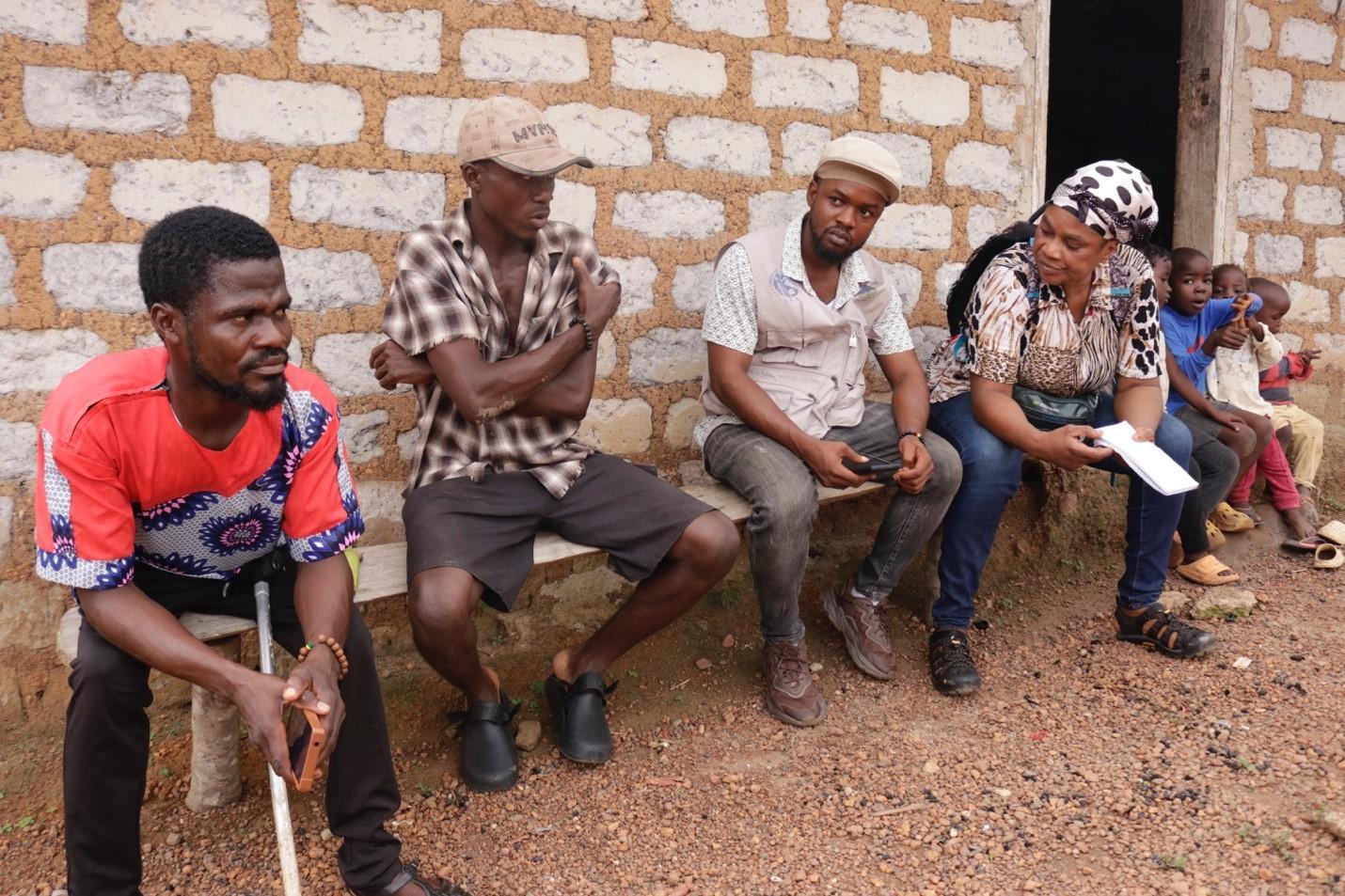Africa-Press – Liberia. A townsman speak with Land Authority and Parley Liberia fieldworker in Gbarmue, a town in the Jorpolu Clan, Jorquelleh District in Bong County. The DayLight/Varney Kamara.
Townspeople in a Bong clan have registered their homes to own the land on which their houses sit. It is the first since Liberia passed the Land Rights Act nearly seven years ago.
The law requires communities to set aside residential areas in parts of customary land for homes and protect residents’ rights, but, until now, this provision has not been enforced since it was established in 2018.
“The fact that this project is going on in the community, people have already started coming together to settle land disputes, leading to reconciliation among our people,” says Moses Kotogboe, Jorpolu’s Clan Chief, whose house was registered earlier during the exercise.
“This will allow us to preserve our culture and inheritance from our ancestors. This is important and unique for us. It’s a blessing for our community.”
In Gbarmue, 17 kilometers from Gbarnga, Bong County’s capital, enumerators go from house to house, recording GPS coordinates and collecting household details such as the owner’s name, number of rooms, and exact location.
Parley Liberia, a Gbarnga-based NGO, is leading this first residential registration, also taking place in Grand Bassa, River Cess, and Bong Counties.
Nearly 300 homes have been registered under the trial, and the process is expected to be replicated in other parts of the country. Fieldworkers are recording all structures in the town, using geolocation.
Roseline Mulbah, Parley Liberia’s senior project officer, marks a house in Gbarmue, Jorpolu Clan, as part of a residential plot registration. The DayLight/Harry Browne
Gbarmue, for “tall palm tree” in the Kpelleh language, is the headquarters of the Jorpolu Clan, Jorquelleh District. It has applied and demarcated its borders with neighboring clans. It has only the Liberia Land Authority to conduct an official survey to acquire a customary land deed.
Though a moratorium on public land transactions, imposed in February, has stalled Jorpolu’s quest for a deed, the restriction does not affect the residential home registration. People will get a certificate at the end of the exercise, legalizing their ownership.
Gbarmue’s townspeople welcome the development, including women. Despite their legal rights to ancestral plots, their male relatives and traditional beliefs continue to deny them.
“Hearing about people like us receiving certificates for our homes and the land we are sitting on, I am too happy,” says Nancy Weedor, a Gbarmue resident and owner of a four-bedroom house. “This will enable us to plant our cassava to earn something… and allow us to support our homes.”
In the coming weeks, a full list of homeowners would be published for verification and thereafter, residents will apply for residential certificates, according to organizers.
“Residents will apply to the LLA for residential certificates, which will be signed by the [community land leaders] and the town chief before issuance,” says Roseline Mulbah, Parley Liberia’s senior project officer.
For More News And Analysis About Liberia Follow Africa-Press






